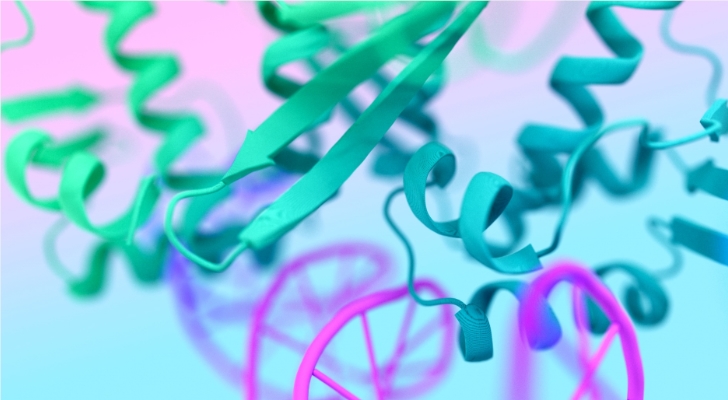Google DeepMind released AlphaFold3's source code and model weights, a move marked a major breakthrough in the field of protein structure prediction and quickly won its developers the Nobel Prize in Chemistry. AlphaFold3 not only predicts protein structure, but also models complex interactions between proteins, DNA, RNA and small molecules, which has revolutionized drug discovery and disease treatment. Its open source strategy, although there are some controversy over licenses, undoubtedly drives the advancement of scientific research.
Compared with the previous version of AlphaFold2, AlphaFold3's technical capabilities have made a qualitative leap. AlphaFold2 can only predict the structure of a protein, while AlphaFold3 can model the complex interactions between proteins, DNA, RNA and small molecules, which is the basic process of life. This progress is crucial because understanding these molecular interactions is central to modern drug discovery and disease treatment. Traditional research methods often require months of laboratory work and millions of research funding and are not guaranteed to be successful.

The release of AlphaFold3 has transformed it from a dedicated tool to a comprehensive solution to study molecular biology. This broader capability opens up new paths to understanding cellular processes, including gene regulation and drug metabolism, to a scale that was previously unavailable.
Although the release of AlphaFold3 has provided new impetus for scientific research, its timing also highlights an important contradiction in modern scientific research. Although DeepMind chose not to release code for the time being when AlphaFold3 debuted in May this year, and provided limited access only through the web interface, the decision has sparked widespread criticism from researchers. The open source release attempts to find a balance between scientific and commercial interests. Although the code is freely available under a Creative Sharing License, the use of key model weights still requires Google's clear permission, which has raised some researchers' doubts.
AlphaFold3's technological advancement makes it stand out. The system adopts a diffusion-based approach that directly interacts with atomic coordinates, which represents a fundamental change in the field of molecular modeling. This makes AlphaFold3 more efficient and reliable when studying new types of molecular interactions.
Nevertheless, the impact of AlphaFold3 in drug discovery and development is still huge. Although commercial restrictions currently limit their use in the pharmaceutical field, the academic research brought about by this release will enhance our understanding of disease mechanisms and drug interactions. The improved accuracy of the system in predicting antibody-antigen interactions is expected to accelerate the development of therapeutic antibodies, an increasingly important area in pharmaceutical research.
The release of AlphaFold3 marks an important advance in AI-driven science, with its impact going beyond drug discovery and molecular biology. As researchers apply this tool to various challenges, we will see new applications emerging in the field of computational biology.
Project entrance: https://github.com/google-deepmind/alphafold3
Key points:
The release of AlphaFold3 will accelerate scientific discovery and drug development.
The new version can model complex molecular interactions, including proteins, DNA, RNA and small molecules.
The open source approach aims to balance scientific research and business interests and promote academic exploration.
The open source of AlphaFold3 is not only a technological breakthrough, but also an exploration of the scientific development model. While promoting scientific progress, it also triggered discussions on the balance of open source and commercial interests, providing new thinking directions for future scientific research. We look forward to AlphaFold3 bringing more breakthrough progress to the scientific community in the future.